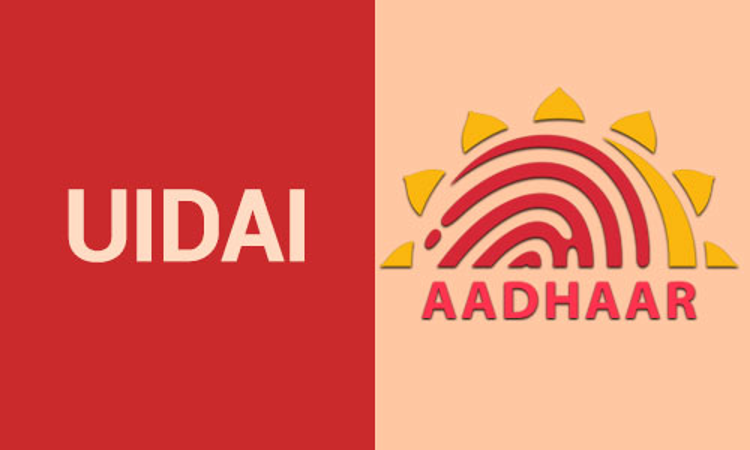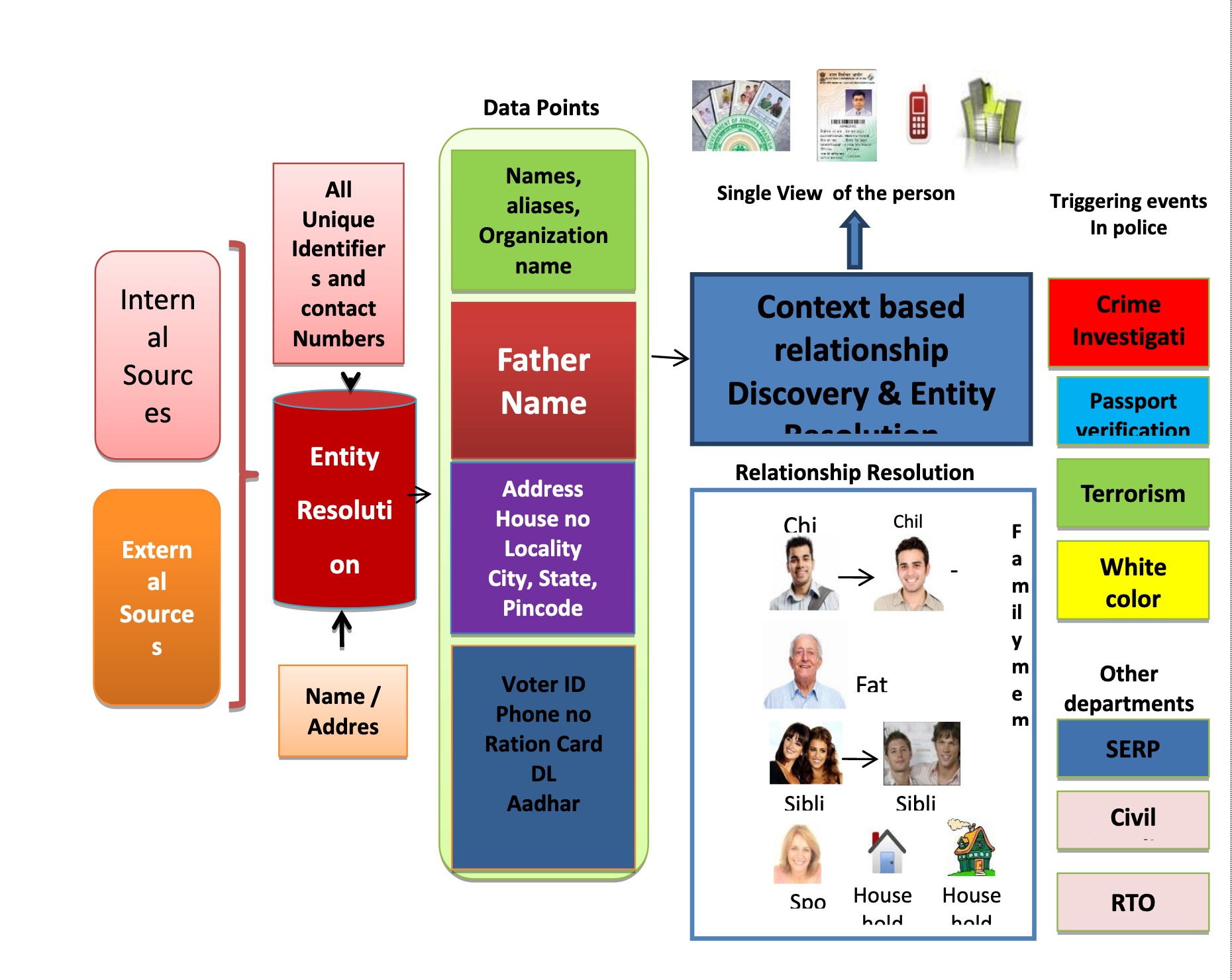The Possible Aadhaar-NPR-NRC Link : A Cause For Concern?
V Anand
14 March 2020 9:27 AM IST

Background
The UIDAI has been consistent that Aadhaar is not a citizenship proof. Foreigners who earn business income in India and are considered as tax residents, need to enroll for Aadhaar to file tax returns because of the mandatory PAN Aadhaar linking. Further even NRIs and PIOs who have stayed even for a day are eligible to apply for it.
This categorization (Resident or Non-Resident) is self declared during enrollment. NRIs, PIOs and foreigners typically use their passport as a supporting document, but citizens do not. Nothing however prevents a foreigner to create a forged supporting document and enroll herself as a Indian resident as the ISI spy Mehboob Rajput so eloquently demonstrated.
The design decision that led to his hole in Aadhaar is the UIDAI's initial mandate to enroll as many people as possible in a short time. All it ever cared about was collecting biometrics but not document verification. It is already a known fact, that UIDAI does not have documents in its possession, like the enrollment forms, the consent forms and the supporting documents for 40% of the Aadhaar numbers generated.
If missing documents has been a recurrent problem, why then were notices sent to 127 people saying that they have obtained Aadhaar under false pretenses and also asking them to bring the originals to prove that either they are an Indian National (OR) they have a valid travel document and are staying in India legally as a foreigner?
Analysis
An analysis of the media reports indicate that a common pattern emerges when the notices are examined in depth:
- The Aadhaar numbers are all made in the same enrollment registrar (Feb 18, 2020).
- The UIDAI got the information from Hyderabad Police (Feb 18, 2020)
- One of the notices was sent to Mohammad Sattar Khan, who had helped Rohingya refugees to obtain Aadhaar (Feb 20, 2020)
- Multiple news articles about Rohingya refugees getting passports by first obtaining an Aadhaar and then PAN by using electricity bills and driving licenses (here, here, here) (2019, 2018, 2017)
- The Ministry of Home affairs banning the issue of Aadhaar to Rohingyas (who carry a refugee card issued by the UN) after noting that there are several instances where Aadhaar has been given to refugee card holders (2018)
We can now reasonably conclude with the above chronology that the notices were indeed sent suspecting all the 127 holders to be Rohingya refugees who have fabricated the feeder documents, based on the police investigations and were not initiated by the UIDAI on their own.
The question still remains on the basis on which the Hyderabad police determined that these 127 holders are suspicious. The answers lie in the "Integrated Information Hub" project that was built by the Hyderabad police, which seeks to build a 360 degree view of every resident by merging all existing databases (Page 120).

The IIH project is fully operational and can track intimate personal details of residents including intimate personal details of 43 million of the state's 50 million residents: GPS coordinates of their homes, the medicines they use, the food rations they eat,
Aadhaar - NPR Link
The primary purpose of a National Population Register (NPR) is to create a comprehensive identity database of every usual resident in the country, where usual resident is defined as a person who has resided in a local area for the past 6 months or more or who intends to reside for the next 6 months. The database comprises both demographics and biometrics.
The purpose of the NPR and that of Aadhaar is exactly the same - Capturing all residents' demographics and biometrics. The primary difference was the methods used. While NPR used a "Verify First and Enroll later" approach, the Aadhaar project used the "Enroll First and Verify later" approach. As these two parallel approaches proceeded simultaneously, there was an internal tussle, which was resolved by merging them together and the NPR seeded Aadhaar database would be the the mother database for welfare delivery.
The NPR link is further confirmed by Nandan Nilekani who said, "We finally resolved it by making Aadhaar as the back end of NPR" when MHA wanted to stop Aadhaar. While the current NPR database was already seeded with Aadhaar for 60 Crore entries, the rest were not. Hence the current NPR exercise, proposed mandatory collection of Aadhaar, thereby ensuring that these two databases are fully merged.
'Kenyan Court Process Better Than SC's Approach To Aadhaar Challenge' : V Anand, Who Testified Against Kenyan Biometric Project
Aadhaar - NRC Link
The recently concluded Assam NRC exercise monitored by the Supreme Court, included a Standard Operating Procedure (SOP) of collecting biometrics of all applicants. As per the SOP, those who make it to the final list, would be issued Aadhaar numbers, but those who do not make it, will be placed in a permanent biometric black list and will not be able to get Aadhaar anywhere in the country.
The Permanent blacklist of biometrics approach is further confirmed by UIDAI's chief, who said "We can not only cancel Aadhaar but also ensure through the offenders' biometric data that they never apply for it again, preventing their re-entry into the system".
The notices to 127 residents in Hyderabad asking them to prove Citizenship and the UIDAI's subsequent denial that it is not demanding proof for citizenship, hence does not hold water, given that it has already built the technical capability of permanent biometric blacklists.
The legal backing for the blacklist approach is provided by the Aadhaar regulations and the Supreme court judgement (Paragraph 7).
Once declared an illegal immigrant or placed in the "D" (Doubtful) category, data sharing will be across all agencies of the country . It will have all the data including biometrics and cancelled Aadhaar numbers (legacy data) and will connect border police, detention centers and state governments.
Service Cancellation
The Ministry of Home Affairs also called for cancellation of other ID documents issued to illegal immigrants which includes Voter ID, Driving License and Ration Cards by states. Given that Aadhaar linking is mandatory for both central and state welfare schemes and the increasing push towards central welfare schemes such as One nation, One ration card and technology projects such as Integrated Information Hub, it would be trivial to cancel all services and benefits once placed in the Illegal immigrant or the "D" category based on the Aadhaar number.
This will not be possible unless even private parties including banks and telecom providers are not compelled to use it as the only source of identification and hence explains the passing of the Aadhaar amendment act.
Putting it all together
The NPR-Aadhaar-NRC-CAA combination must be viewed holistically as different stages of the same project - Identifying illegal immigrants, stripping them of all rights and either putting them on a detention center infinitely or deporting them.
Stage 1 of this process is the NPR-Aadhaar combination, which aims to capture all residents and link all the existing identity documents to a single ID based on biometrics. It also involves linking all the subsidies, benefits and even voting rights conditional to the possession of this one single ID. The aim of the NPR exercise in 2020 would be to bring everyone in it's ambit and that explains why the Home ministry proposed the mandatory collection of Aadhaar.
Stage 2 would then be the NRC process, which would either use locally built police databases or the data from the e-Foreign tribunals cross seeded with other Aadhaar seeded databases to determine, if someone is a potential illegal immigrant or belonging to the "D" Category.
Stage 3 would determine if a person is determined to be an illegal immigrant after applying the Citizenship Amendment Act (CAA) and then cancelling all the services and benefits linked with their Aadhaar and also placing a permanent ban on their biometrics, thereby ensuring that they can never get an Aadhaar again.
Conclusion
The Assam NRC exercise ordered by the Supreme court showed how contentious citizenship determination could become. The previous co-ordinator was accused of graft, the current co-ordinator thinks that ineligible persons have made it to the final list and NRC rejects struggle to make a living, even though they have not yet been declared as foreigners by the tribunals.
The UIDAI notices issued based on the Hyderabad police show how all India NRC will be rolled out. It will be driven by local state police departments running their own state data hubs integrated with other databases like NPR and Aadhaar, where D status will be determined using a technological regime.
That this was always the intent was evident even in 2010, when the then Intelligence Bureau chief (and the current NSA), Mr. Doval, who said "UID, originally, "was intended to wash out the aliens and unauthorised people. But the focus appears to be shifting. Now, it is being projected as more development-oriented, lest it ruffle any feathers."
(The author is a cyber security expert. Views are personal)


